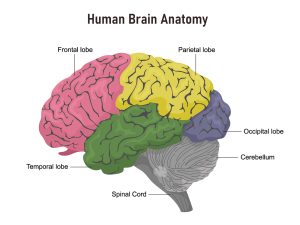What does the brain do? (10 functions)
The brain is an incredibly complex organ responsible for a wide range of functions in the human body. Here are the 10 key functions of the brain.
1. Processing information
The brain receives, interprets, and processes information from our senses – such as sight, hearing, taste, smell, and touch – to create our perception of the world around us.
2. Cognitive functions
The brain is involved in various cognitive processes, including: attention, memory, language, problem-solving, decision-making, and reasoning. These functions enable us to think, learn, and process information.

3. Motor function
The brain controls voluntary and involuntary movements of the body. It coordinates muscle movements; allowing us to walk, talk, grasp objects, and perform various other physical actions.
4. Sensory function
The brain integrates information from different sensory modalities to create a unified perception of the world. It combines visual, auditory, tactile, and other sensory inputs to form a cohesive understanding of our surroundings.
5. Regulation of physiological functions
The brain plays a crucial role in regulating essential physiological functions; such as heart rate, respiration, digestion, and blood pressure. It maintains homeostasis by continuously monitoring and adjusting these functions to keep the body in balance.
6. Emotions and behaviour
The brain is involved in the generation and regulation of emotions, mood, and behaviour. It influences our emotional responses, motivation and social interactions.
7. Learning and memory
The brain is responsible for acquiring new information, storing it as memories, and retrieving those memories when needed. Different regions of the brain, such as the hippocampus, are involved in the formation and consolidation of memories.
8. Sleep and consciousness
The brain regulates sleep patterns and the cycles of wakefulness and sleep. It is also responsible for our conscious experience, self-awareness, and the sense of being.
9. Executive functions
The brain carries out executive functions, which involve higher-level cognitive processes like planning, organising, prioritising, and problem-solving. These functions help us set goals, make decisions, and regulate our behaviour.
10. Language and communication
The brain is crucial for language processing and communication. It enables us to understand and produce spoken and written language, as well as non-verbal communication (like gestures and facial expressions).
These functions are performed through the complex interactions of billions of neurons and their connections in the brain. It is important to note that our understanding of the brain is still evolving, and ongoing research continues to reveal new insights into its capabilities and intricacies.
Summary
We have described what does the brain do – and its 10 functions. We hope you understand it better now.

